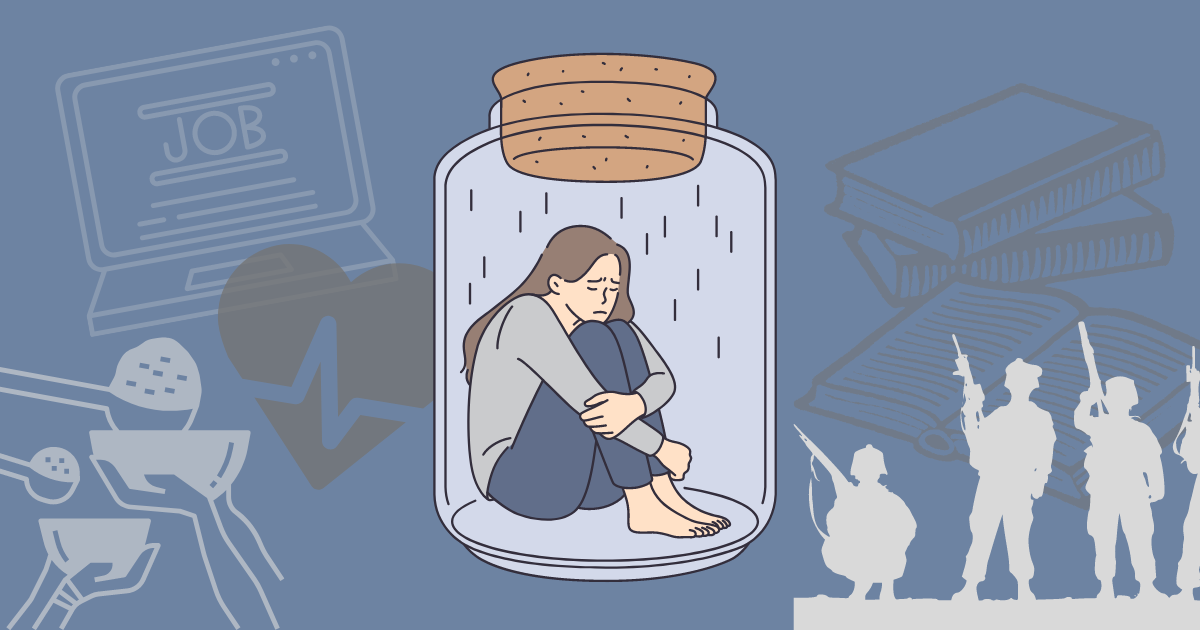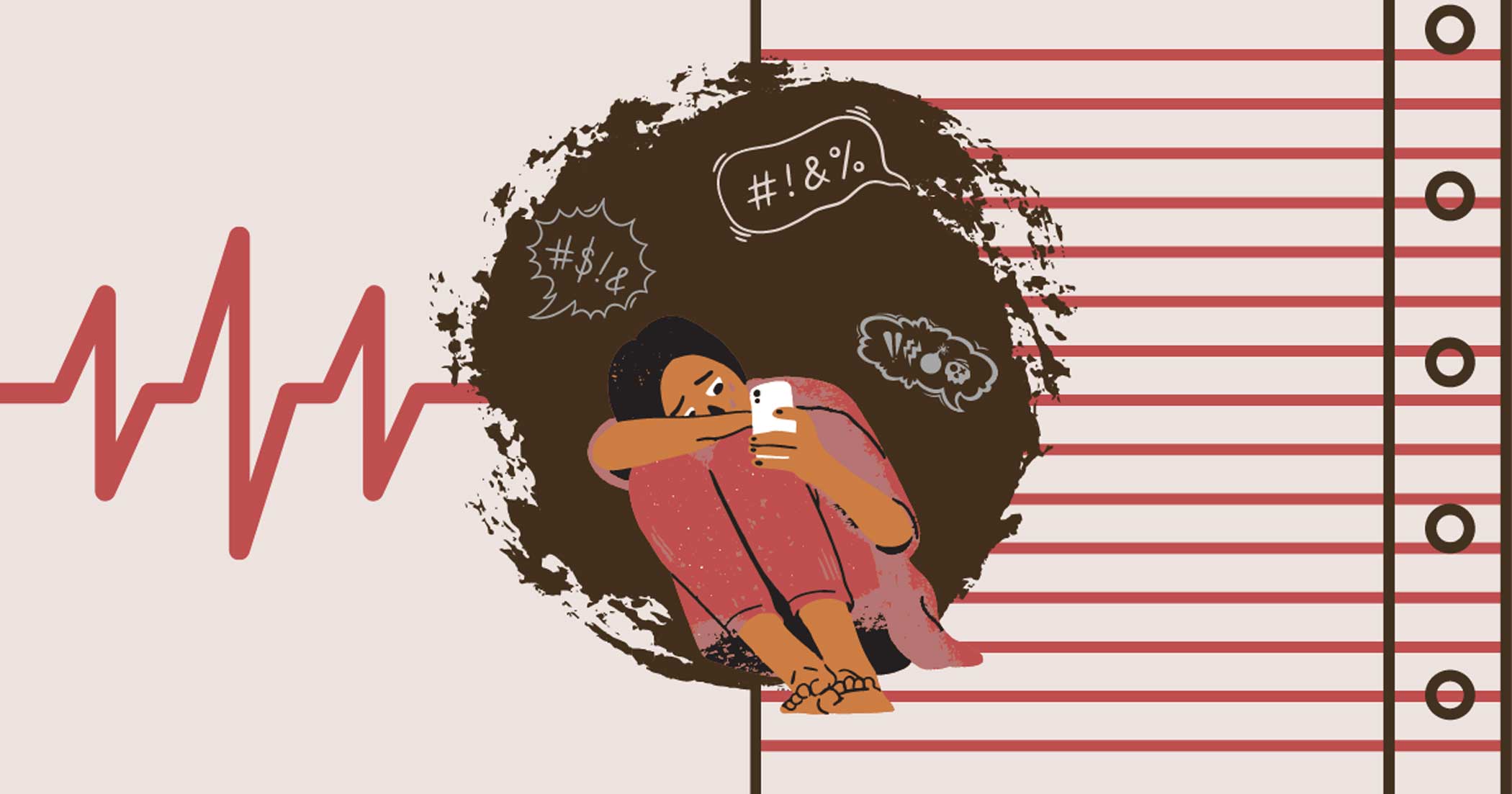Between death and desire to live: A suicide survivor’s account

Trigger Warning: This article discusses personal thoughts about and attempts to self-harm.
It would have been my 13th death anniversary this year.
Thirteen years ago, on September 13, I tried to take my own life. The day still sits in my chest like a stone, smooth from years of turning it over in my palm. If you have never experienced poor mental health or specifically suicidal thoughts, it can be hard for you to understand why a person would want to hurt themselves, why one would seek silence over breath. But when I was at my lowest, suicide felt less like a choice and more like the only possible escape from the unbearable weight of being alive.
To those who have never walked the tightrope between existence and void, suicide appears as an act of ultimate selfishness because of the wreckage it leaves behind. But let me tell you about the geography of that darkness from whence I made that choice. I believed I was purposeless. I genuinely believed the world would spin more smoothly without me, that my absence would feel like the removal of a splinter. This is how complete despair rewrites the story of your worth.
I was a meritorious yet troubled teenager. The evening I swallowed battery acid and tasted metal and fire, my body was finally ready to reject what my mind had already rejected: the will to live, a heavyweight decision for a fourteen-year-old to take. I vomited blood due to a significant internal burn, and yet, somehow, miraculously, I survived. The emergency room at Dhaka Medical College Hospital became my reluctant birthplace—the place where I was born again, not into light, but into what seemed like the strange, persistent fact of survival.
The reasons seemed so small afterwards, so laughably insufficient to justify the magnitude of what I had attempted. Falling grades, a broken heart, extremely strict parenting, especially my father's fury over a phone tucked under my textbooks—tiny dominoes that somehow built into an avalanche. But perhaps that's the cruellest truth about mental distress (or illness): it transforms molehills into mountains, makes giants of shadows.
Suicidal ideation is like a seed. Once planted, it takes root in the soft soil of your consciousness, waiting. I thought I was better—for years, I walked in what felt like sunlight. But doubt is patient. A single drop of ink can cloud an entire glass of water, and the moment you realise you're not perfectly well is the moment you understand how unwell you've always been.
And so the ink found its way to the glass, once again. On one very usual night in December 2023, I came back to an empty home after a long day at work. I was too drained to write a suicide note. But I had to leave something behind for my sisters, for my parents. I owed them at least that much. So, I decided to record a video and left my passcode on a sticky note.
That night felt awfully long and dark.
If you are wondering—what happened this time? An almost six-year-long romantic relationship had just fallen apart. Two rescued kittens, brief lights in my world, had both passed within a week, as if even the universe's smallest mercies were being revoked. My Master's programme felt like a wall I couldn't climb, my efforts falling short of even the minimum. A credit card scam emptied my savings, and unpaid bills were piling up; and I was alone with my long list of "failures."
Yet, none of these reasons seemed "enough" to justify leaving this messy, beautiful, one-of-a-kind existence. The definition of survival kept shapeshifting in my mind every passing minute. To others, it might look like nothing at all. To me, I was walking around with my head on fire, and no one could see the flames.
What pushed me to the edge was not the reasons but the thought itself. It started as a whisper, then became a fast-moving train of consciousness. Before I could step off the tracks, I was chained to a new, claustrophobic reality. The world seemed increasingly designed to crush my spirits, and why wouldn't it? Happiness, after all, has never been particularly good for the economy.
Depression doesn't just steal your joy or make you sad; it breaks your legs, cuts off your wings, and removes your ability to walk towards any light that might be waiting at the end of the tunnel. The weirdest and most terrifying fact about our mind is that you can carry the most intense storms in there, while no one else might have even the slightest clue about them. In those moments, it feels there was no way anyone else could understand why death might seem not just appealing, but logical—a phenomenally good idea.
Suicide is not only about depression. It can be an impulsive moment when financial hardship, heartbreak, illness, or isolation collide. It hides in war zones, refugee camps, classrooms, prisons, and quiet bedrooms alike.
I didn't know if I would survive that night. But I did. To remain calm and find contentment in my non-upgraded existence became a kind of revolution in itself. When I say "intifada" is my favourite word, I mean resistance in every form and intensity. Showing resistance to exist, breathe, and endure. To be loved is necessary; however, it is not always sufficient to want to keep living. Sometimes resistance alone keeps you here.
You are not alone
Suicidality and curiosity are anathema to each other: you cannot and would not want to know things if you simply want to die. As long as I had questions, I had reason to live, and when I was overwhelmed by a desire for death, I could not begin to do the curious work that made life worth living. When I talk about suicide, I often speak of others rather than my own borrowed days. Kurt Cobain, brilliant and blazing, died at 27. Sylvia Plath sealed the doors with towels before she turned on the gas. Virginia Woolf, her pockets weighted with stones, stepped into the River Ouse. The creative figures I admired all my life were all ghosts. For years, I didn't see the connecting thread—how deeply I had been drawn to those who understood the weight of existence but could not bear it. Time and again, people describe this same isolation, this sense that their struggle is theirs alone. The inability to get out of bed, to connect with others, feeds self-hatred. I, too, was convinced I wanted to die because I was irredeemably flawed, incapable of improvement—not because I was sick and trapped in a distorted perception of myself and the world. This is the cruellest trick of suicidal ideation: it convinces you that your pain is unique, deeply personal, and most importantly, unfixable.
The numbers tell their own story. According to the latest World Health Organization report, more than 720,000 people die by suicide every year. It is the third leading cause of death among 15-29-year-olds. Seventy-three percent of global suicides occur in low- and middle-income countries like ours. For every actualised suicide, many more attempt it.
In Bangladesh, every year an average of 20,505 people die by suicide, according to a survey by the Centre for Injury Prevention and Research, Bangladesh (CIPRB). Among them, 35.4 percent are adolescent girls. The highest rates are recorded among those aged 15 to 17, with rural areas showing a greater prevalence than urban areas.
Suicide or attempts at it can be prevented by adopting responsible, thoughtful approaches, including limiting access to means, teaching young people resilience, speaking responsibly in the media, and building systems that notice suffering before it becomes unbearable. However, stigma still remains the most suffocating shroud. To speak of suicide is often taboo, frowned upon in societies and social circles. Silence kills more effectively than despair itself.
Moreover, we tend to separate mind from body, as if the brain exists in some ethereal realm apart from flesh and bone. But mental anguish shows itself through the body: heart palpitations, sweaty palms, aching limbs, that uncomfortable sensation creeping up the back of your neck. Mental illness is not only in the mind; it lives in the flesh. And the body keeps the score, always. Hence, we need to take mental well-being as seriously as our physical health.
Reasons to stay alive
Leaving my psychologist's office one day, I told her, "I don't want to die. I really want to live. I'm trying."
The reason I continue to suffer through this desolate existence is that a small part of me still wants to wait for things to finally get better. For every moment I think of death, I still think of what I might miss. What if, against all odds, it gets better tomorrow? Or the day after? Or maybe today, a moment later? It's like waking up each morning and waiting, endlessly, for a miracle to happen—a miracle that will make everything okay; and that miracle exists within us, in the form of resistance and resilience.
After making it this far, why would you choose such an insignificant ending? Don't you deserve something more meaningful than disappearing into statistics?
On this World Suicide Prevention Day, I write this not as someone who has conquered darkness, but as someone still learning to dance with it. Some days I stumble, other days, I forget the steps entirely. But I keep showing up to the dance floor of existence, because the music, however discordant, is still playing. And healing is a continuous process, a journey that is not linear.
To anyone reading and recognising themselves in these words: you are not alone in your aloneness. Your pain is not uniquely yours, although it feels that way. The tunnel has an end, even when you cannot see it. Sometimes survival is the most radical act we can perform. Sometimes just breathing is resistance. Sometimes waiting one more day is the bravest thing we will ever do.
Thirteen years and several attempts later, I am still here. Still asking questions. Still curious about tomorrow's unexpected kindness, tomorrow's possibility of joy. That has to count for something. After all, in the end, it takes more courage to live than to die.
Mahiya Tabassum is a member of the editorial team at The Daily Star.
Views expressed in this article are the author's own.
Follow The Daily Star Opinion on Facebook for the latest opinions, commentaries, and analyses by experts and professionals. To contribute your article or letter to The Daily Star Opinion, see our guidelines for submission.




 For all latest news, follow The Daily Star's Google News channel.
For all latest news, follow The Daily Star's Google News channel. 

Comments